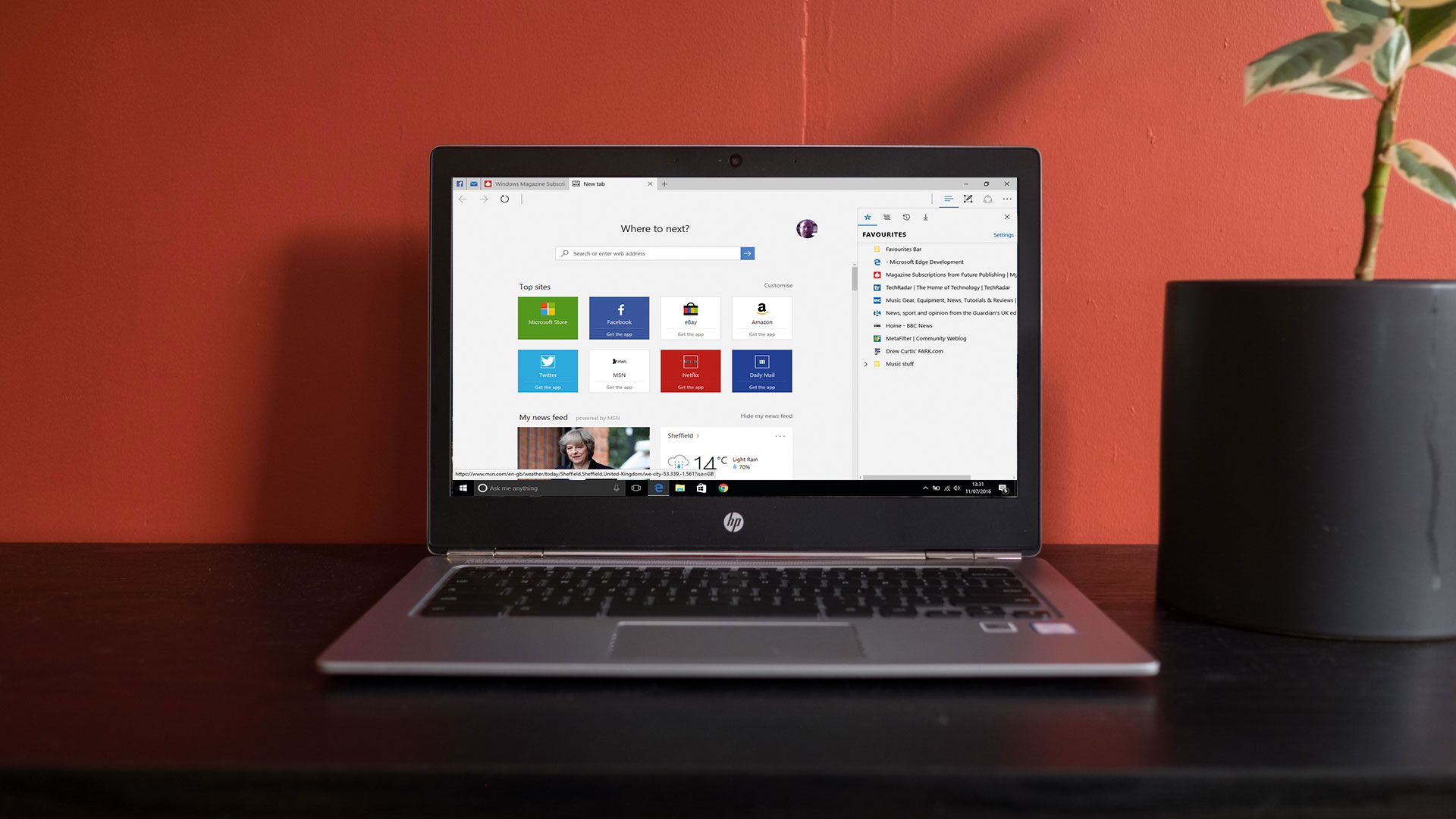
Sign up for breaking news, reviews, opinion, top tech deals, and more.
You are now subscribed
Your newsletter sign-up was successful
Microsoft’s Edge browser has dropped in popularity once again this month, according to the latest figures from one analytics firm.
Netmarketshare’s stats for October show that Windows 10’s browser only has a desktop market share of 4.58% now, which represents a drop of 0.57% compared to the previous month (when it stood at 5.15%).
Perhaps the more disturbing news for Microsoft is that this isn’t a one-off drop, as the month before that, the browser slumped from 5.66% (losing 0.51%). So Edge has lost just over a full percentage point in the last two months – and it didn’t have a huge amount of market share to lose in the first place.
Google’s Chrome was the top dog of desktop browsers, securing a 59.84% share of the market, with Microsoft’s Internet Explorer actually in second place, but a long, long way behind on 15.09%. Firefox was third on 13.14%, with Edge in fourth place.
Not getting off the ground?
This is certainly a worrying development for Microsoft Edge, because at this point it should still be steadily growing its relatively small user base, rather than looking like it’s in danger of collapsing back in on itself.
Edge, of course, has had a difficult time from the very launch of Windows 10, largely because it was an unfinished product when it went live in the new operating system. The browser was even missing key elements such as extensions, and these took an inordinately long time to show up.
It’s also true that despite Microsoft positioning the browser as a strong product in terms of security, it probably hasn’t helped that Edge has fared dubiously on this front as well at some points throughout this year, such as the Pwn2Own hacking event, where it proved to be the worst browser in terms of getting hacked.
Sign up for breaking news, reviews, opinion, top tech deals, and more.
That said, Microsoft continues to work hard on Edge, and we saw some brighter news last month, with it being rated the best browser for defending against phishing sites.
But pushing the browser seems to be an uphill battle looking at these adoption figures, and we can’t help but think that the early perceptions of Edge as an unfinished product still linger in the back of the minds of the computing public.
Via: Softpedia
- Surf the web in style on one of our best laptops
Darren is a freelancer writing news and features for TechRadar (and occasionally T3) across a broad range of computing topics including CPUs, GPUs, various other hardware, VPNs, antivirus and more. He has written about tech for the best part of three decades, and writes books in his spare time (his debut novel - 'I Know What You Did Last Supper' - was published by Hachette UK in 2013).